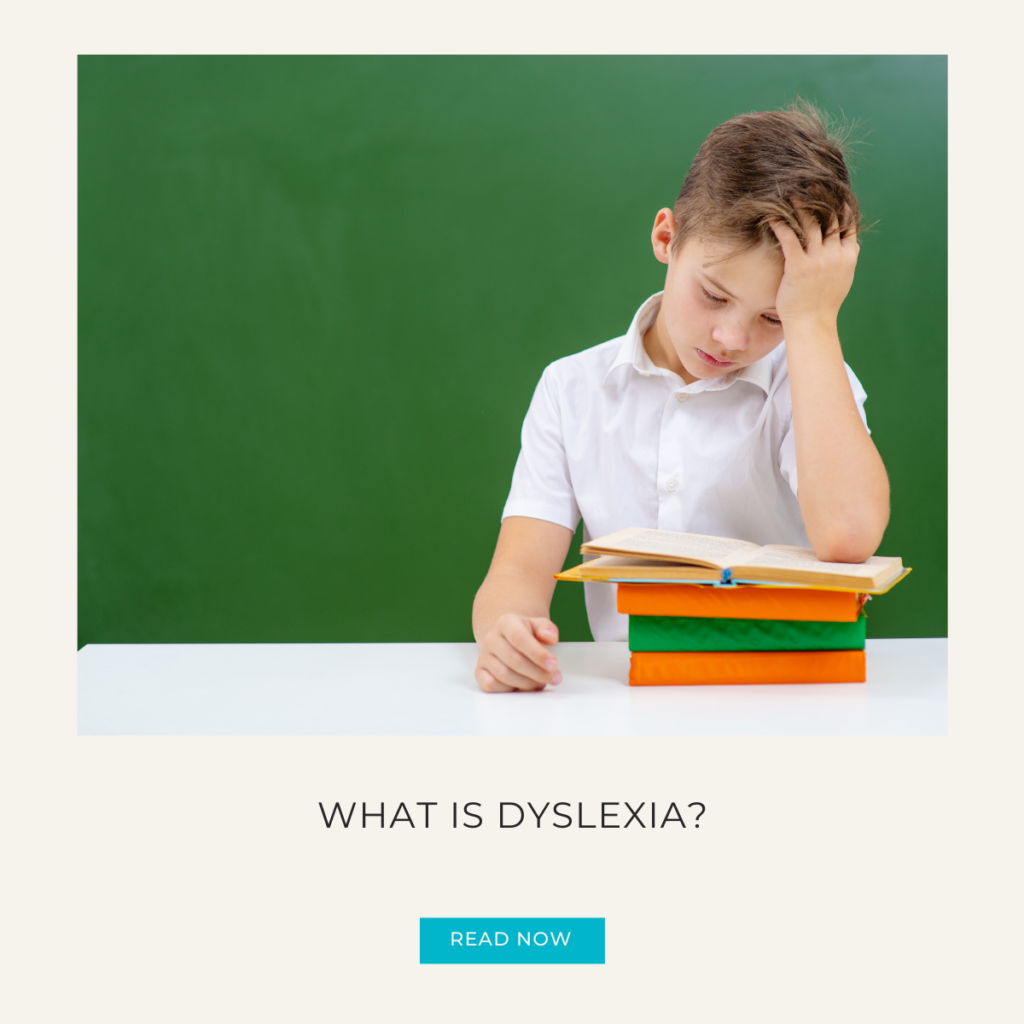
Thursday night studying sight words for the Friday test at school . . . sitting on the floor in tears, mother and daughter. It’s been a week of frustration because every night it is a struggle with homework. The daughter acts funny and silly some nights to avoid homework and other nights claims that she is too tired to do homework. In the mornings, the daughter complaints of headaches and stomach aches. It makes no sense . . . she is so bright and creative throughout the day, she learns math facts quickly and her vocabulary is beyond her years. What is going on? Mom’s intuition – her daughter may be dyslexic. But, the mother is told it may just be “developmental” and the red words and reading will just “click” one day and she will get it. But she doesn’t . . . so a year later, the daughter is diagnosed as dyslexic.
What is dyslexia?
The word dyslexia has Greek origins: “dys” (means impaired, difficult, or inadequate) and “lexis” (means language or words). Dyslexia is a neurological condition caused by a different structure and function in the brain.
Dyslexia is genetic, so there will be other dyslexics within the family. It can skip a generation. Dyslexia is not a disease. There is no cure for dyslexia. Students with dyslexia must learn coping strategies to help them read, write, and spell (and sometimes with math). Research indicates that dyslexia has no relationship to intelligence. As such, many of the most successful people have been identified as dyslexic.
Dyslexia has been defined as:
“. . . a specific learning disability that is neurobiological in origin. It is characterized by difficulties with accurate and/or fluent word recognition and by poor spelling and decoding abilities. These difficulties typically result from a deficit in the phonological component of language that is often unexpected in relation to other cognitive abilities and the provision of effective classroom instruction. Secondary consequences may include problems in reading comprehension and reduced reading experience that can impede growth of vocabulary and background knowledge.” Adopted by the IDA Board of Directors, Nov. 12, 2002.
I actually prefer the definition by the Yale Center for Dyslexia and Creativity. It is so concise and easy to understand. The center defines dyslexia “as an unexpected difficulty in learning to read. Dyslexia takes away an individual’s ability to read quickly and automatically, and to retrieve spoken words easily, but it does not dampen their creativity and ingenuity.”
Do you think your child may be dyslexic? There are characteristics of dyslexia that your child may have at home and/or school that would indicate your child may be dyslexic. Be sure to follow your mom instinct – I did and it made all the difference for my daughter.
I would recommend reading Overcoming Dyslexia by Sally Shaywitz M.D. Her book covers: Part I – The Nature of Reading and Dyslexia, Part II – Diagnosing Dyslexia, Part III – Helping Your Child Become a Reader, and Part IV – Overcoming Dyslexia: Turning Struggling Readers into Proficient Readers.
Get connected to the DML (Dyslexia Mom Life) community – Instagram and Facebook.
P.S. I would love to hear from you. Where are you stuck? How can I help? Let’s chat – email me (Nicole).